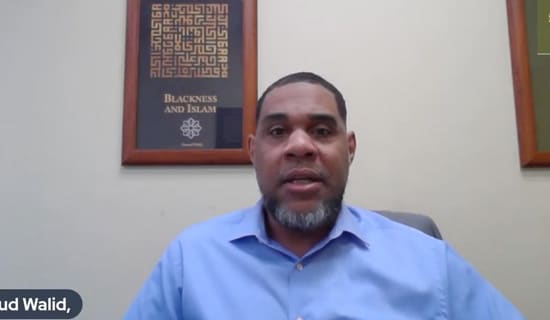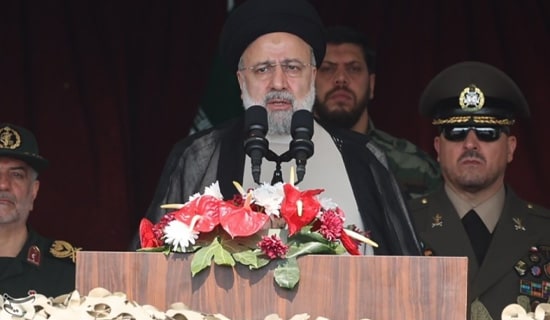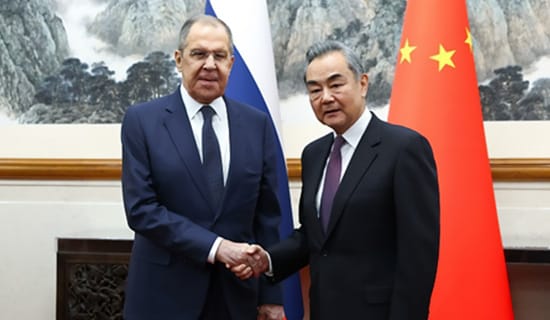When Russian Minister of Foreign Affairs Sergey Lavrov returned from his latest trip to Africa, he was feted like a conquering hero. Vladimir Putin devoted a meeting to Lavrov's trip at Russia's Security Council and gave the Foreign Minister the floor. "Sergey Viktorovich Lavrov was engaged in the preparation of the Russia-Africa summit and was on a mission in several friendly countries. Let's ask him to start today with information about his mission." [1]
In the State Duma on Wednesday, February 15, a "government hour" was held with the participation of the Minister of Foreign Affairs on "topical issues of the foreign policy of the Russian Federation." Duma Speaker Vyacheslav Volodin claimed that the main takeaways from Lavrov's trip was that "We are not alone. The majority of the world's population shares the position of the Russian Federation, and of our President, Vladimir Vladimirovich Putin, on building a multipolar, just world." Volodin urged the deputies to do everything to help the Minister of Foreign Affairs to implement this policy.[2]
As Russia's relations with the West are on life support, Russia has paid increased attention to Africa. It wants to show that Russia is not isolated by its invasion of Ukraine and it hopes to secure economic and security benefits from expanded ties.
MEMRI presents two columns on the issue. The first is by Professor Leonid Fituni, Corresponding Member of the Russian Academy of Sciences and Deputy Director of the Academy of Sciences' Institute for African Studies. The second text is by Kommersant's foreign policy columnist Maxim Yusin. Fituni and Yusin concur that memories of the colonial era and fears of neocolonialism assist Russia in its competition with the West in Africa. They also agree that currently Russia plays second fiddle to China with its major, entrenched presence in Africa. They disagree on whether Africa is a consolation prize when the West is off-limits, or a major opportunity. They also disagree on Russia's prospects in the competition with China. Yusin believes that Russia will have to content itself with the crumbs China leaves behind, while Fituni believes that China's presence does not pose problems for Russia and that if Russia has finally decided to substantially enhance its presence in Africa, it will be able to catch up with China.
Below are the two articles:

Sergei Lavrov with the South African Minister for International Affairs and Cooperation Naledi Pandor (Source: Rbc.ru)
Leonid Fituni, in his article titled "Everyone Needs The Black Continent,"[3] compares Africa's importance in 2023 to 1960 and the major wave of decolonialization that elevated Africa from internationally insignificant group of colonies to a player on the international arena. He explains:
Judging by its beginning, this year may be remembered in history as the second Year of Africa, by analogy with 1960. Then the European colonial yoke was thrown off by 17 states of the continent, and the collective voice of independent Africa became, for the first time in history, an important factor influencing the international balance of power and decision-making on the world diplomatic stage.
Today, in the context of an unprecedented aggravation of the global conflict, the political weight of the now 54 independent states of the continent, which together constitute nearly a third of the UN voting members, their resource potential, and strategic importance have multiplied. Numerous high-level delegations from leading world powered have frequented African capitals hoping to win over or retain the sympathy of their partners on the continent.
In this regard, Russia does not lag far behind its competitors. Especially given that the Second Summit and the Russia-Africa Business Forum are scheduled for this summer. The first summit was successfully held in 2019 in Sochi, attended by representatives of 43 African countries, including the top leaders of almost 40 of countries. This clearly demonstrated the importance that Africans attach to the development of ties with our country, and their desire to deepen them.
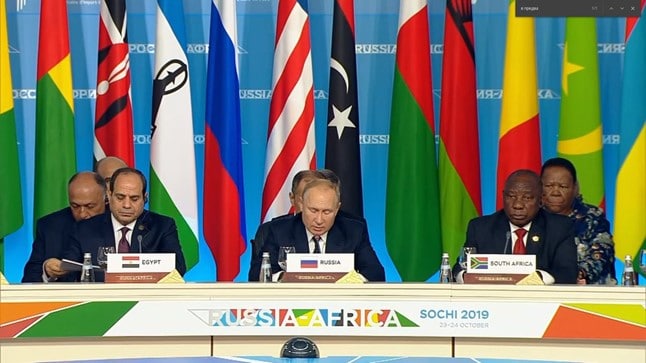
Vladimir Putin addresses the 2019 Sochi Russia-Africa summit (Source: Oblgazeta.ru)
Replicating the success of the Sochi summit is not an easy task. The U.S. and its allies are actively trying to dissuade Africans from cooperating with Moscow. After February 2022, Washington was clearly disheartened by Africa's staunch reluctance to publicly denounce the Kremlin and join anti-Russian sanctions. The stakes in the battle for the sympathies of the Black Continent, and the support and solidarity of Africans have risen sharply.
Since the beginning of the year, Russian Foreign Minister Sergei Lavrov has made two tours of African countries. During the first trip, he visited South Africa, Eswatini, Angola, and Eritrea, and on the second trip – Mali, Mauritania, and Sudan. Prior to that, in the summer of 2022, the head of Russian diplomacy visited Egypt, Ethiopia, the Democratic Republic of the Congo, and Uganda. And in January 2023, negotiations between the Foreign Ministers of the Arab Republic of Egypt and the Russian Federation took place in the Russian capital.
SUPPORT OUR WORK

At the center of negotiations with African partners are issues of bilateral cooperation and the forthcoming second summit. As a result of the visits, Moscow compiles the opinions and proposals emanating from African countries in the context of formulating a detailed agenda for the summit. Four major units are now planned: food and energy security, technology transfer, and healthcare. For Russia, these are areas where our interaction can be especially effective and visible, for Africa, all four are urgent priorities. Given that the development rate of numerous African countries today is one of the highest in the world, the issue of technological cooperation is of particular importance. For our country, this is an important reserve for increasing non-commodity exports.
According to Lavrov, in all the countries he visited, "concurring assessments of the economic state of affairs in the economic sphere were sounded. First of all, from the point of view of the growing desire of the countries of Africa and the African Union to shed the negative consequences of the colonial past, which are still very much felt. The agreements being prepared for the summit will be summarized in a political declaration in plan of action for 2024–2026."
For the sake of objectivity, it is worth recognizing that the road to the summit is not always even and smooth. The White House and its allies, primarily the former European masters of the African colonies, have developed a system of coordinated measures to impede the summit's success. Promises, threats, and blackmail are put into play. For some countries, this pressure has become a test of their ability to defend their sovereignty and independent political choice. The powerful Western media is involved in forming a negative background. For the next six months, the most important task [of the Western media] is to prove Africa's diminished support for, and understanding of, Russia's position on key issues of today's global agenda, and in the longer term, [the aim is] to completely oust Moscow from this strategically important, promising, and resource-rich region.
On the heels of the Russian minister, Washington invariably dispatches its emissaries to African capitals in order to reduce the effect of the recent meetings. In the summer of 2022, a series of such "post-visits" by U.S. Secretary of State Anthony Blinken ended in failure. Since the beginning of this year, several high-ranking officials have been sent to Africa at once to "neutralize Russian influence." U.S. Treasury Secretary Janet Yellen visited Zambia, Senegal, and South Africa, while U.S. Ambassador to the UN Linda Thomas-Greenfield was sent to Ghana, Mozambique, and Kenya. Although the desired "neutralization" did not occur, it must be admitted that, in some tactical aspects, putting spokes in the Russians' wheels was not as unsuccessful as Blinken's had been a few months earlier.
On the whole, however, Russia's positions on the continent remain quite steady. Moreover, in purely geographical terms, the range of countries that are disposed to closer cooperation with Moscow is consistently expanding. In some areas, for example, the fight against terrorism, strengthening the internal security and territorial integrity of African countries, has become unique in terms of its effectiveness and the cost-effectiveness ratio that is so important for poor countries.
Across the Sahel zone from Mali in the west of the continent to Sudan in the east, an increasing number of countries are expressing a desire to strengthen cooperation in this area. This frightens the West, especially some of the former colonial powers, who still view the continent as their neo-colonial "treasure chest" full of expensive and useful things, which can be freely emptied for their own benefit. However, strategically, not tactically, the West sees the strengthening of Beijing's position in Africa, rather than Moscow's as a greater danger. Although the overall economic positions of Western countries on the continent still surpass those of China, Beijing, having taken first place in terms of trade volume and new investments, has been Africa's number one economic and political partner for more than a decade and has been steadily expanding its influence. This process is well thought out and put on a planned footing, which provides a practical effect.
For 33 years, China's successive foreign ministers begin their yearly cycle of official international visits in January with a lengthy tour of Africa, usually visiting four to six countries. In 2023, the voyage of the new Chinese Foreign Minister Qin Gang included high-level meetings in Ethiopia, Gabon, Angola, Benin, Egypt, as well as at the headquarters of the African Union and the League of Arab States.
Beijing soberly assesses the real significance of multilateral cooperation with the continent, to which, as one of the leaders of the Chinese foreign economic departments had admitted in the past, his country owes "20% of its economic rise."
As part of the containment of Russia and China, the West is trying to present the policy of the two states as contrary to the interests of the continent's peoples. Allegations of Beijing's "debt trap" for Africans are being actively circulated. During a visit to Ethiopia, Qin Gang called these allegations verbal trap, recalling that approximately 75% of Africa's debt to be restructured is related to multilateral financial institutions and commercial creditors, and that Sino-African financial cooperation is mainly related to infrastructure construction and the area of production. It aims to build the needed capacity for Africa's self-sustaining development.
Unlike the West, given the real degree of involvement on the continent, China has no significant contradictions with Russia in Africa. In comparison with the gigantic volume of well-established and complex economic, political, cultural, party, and other ties between the PRC and the region's countries, Russia's participation is still niche and fragmented. Only in the last few years, Moscow's efforts in the African direction have begun to take the form of a carefully considered and consistently implemented strategy. The second Russia-Africa Summit and Business Forum scheduled for July 2023 is expected to become an important milestone on the road to its realization.
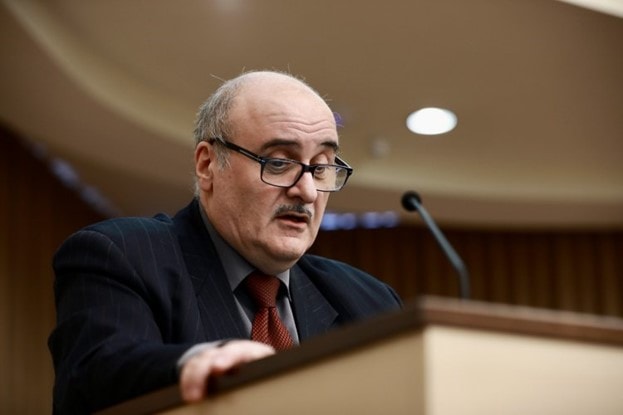
Leonid Fituni (Source: Scientificrussia.ru)
Maxim Yusin, in his column titled "In The Fight With The West For Africa, Moscow Has Trump Cards,"[iv] warns against extravagant expectations regarding the new romance with Africa. Nevertheless, Yusin's position is that after being rejected by the West, Russia has little choice but to pursue closer relations with African states. Yusin writes:
The head of the Russian diplomatic service Sergei Lavrov is visiting Africa for the second time in less than a month. His first tour in January included visits to South Africa, Eswatini (formerly Swaziland), Angola, and Eritrea. Now Mali, Mauritania, and Sudan are on the agenda.
Since the launch of the special military operation in Ukraine and the sharp deterioration of relations with the West, the importance of the "Black Continent" to Moscow has increased markedly. First, the 54 African states present a powerful support group at the UN. And considering that nowhere near all of them vote in favor of the anti-Russian resolutions proposed by the West at the General Assembly, it is rather hard for Americans and Europeans to talk of the Kremlin's international isolation.
Second, none of the African countries have joined the sanctions [against Russia], which is a fact that, in the long run, provides significant opportunities for both economic cooperation and parallel imports, as well as for circumventing certain restrictions introduced by Washington, the EU and the G7 member-states.
Third, in many countries on the continent, Moscow is still perceived as a reliable military partner and a sort of security guarantor, despite the mixed preliminary results of the Ukrainian campaign. Some countries, most notably Mali and the Central African Republic, are now perceived in the West to be within Russia's sphere of influence, having exchanged Paris for Moscow as their main foreign policy and military ally.
Russia possesses several important trump cards in its confrontation with the West in Africa. First of all, I am referring to an anti-colonial tradition dating back to Soviet times, when Moscow provided the most substantial assistance to the peoples struggling to leave first the British, then the French, and after that the Portuguese colonial empires.
Russians are not associated in Africa with oppression, exploitation, and discrimination, whereas representatives of former colonial powers cannot get rid themselves of this image (even if they wanted to). Therefore, it is more difficult for them to have a dialogue with Africans, for instance, to try to persuade them to join the anti-Russian sanctions.
In this regard, harsh pressure, which is so effective when it comes to European and post-Soviet states, doesn't work with Africans. In response [to such tactics], there are immediate reproaches on the part of African states such as, "Are you bringing up the colonial times again? Do you want to dictate your will to us again? Don't you think we are in a position to decide for ourselves with whom and how to build relations? Are you infringing on our sovereignty? Dictating our will by threatening us with some kind of secondary sanctions? Hasn't life taught you anything?" And in the end, the Europeans often capitulate. In today's politically correct world, Africans must be dealt with delicately and pressure must never be overplayed.
In the light of the above, Moscow has good prospects in Africa. Although they should not be overestimated. Economically, Russia is much less attractive to Africans than, for instance, China, which has been successfully increasing its presence on the continent for several decades. The Chinese, unlike the Russians, have money for large-scale investments and ambitious projects, and if necessary, for bribing local elites.
Thus, one shouldn't harbor any particular illusions. Beijing has most likely already staked out the most lucrative and promising contracts and mineral deposits. Moscow will have to play second fiddle. But it is better than nothing. In the current situation, there is not much choice anyway.


